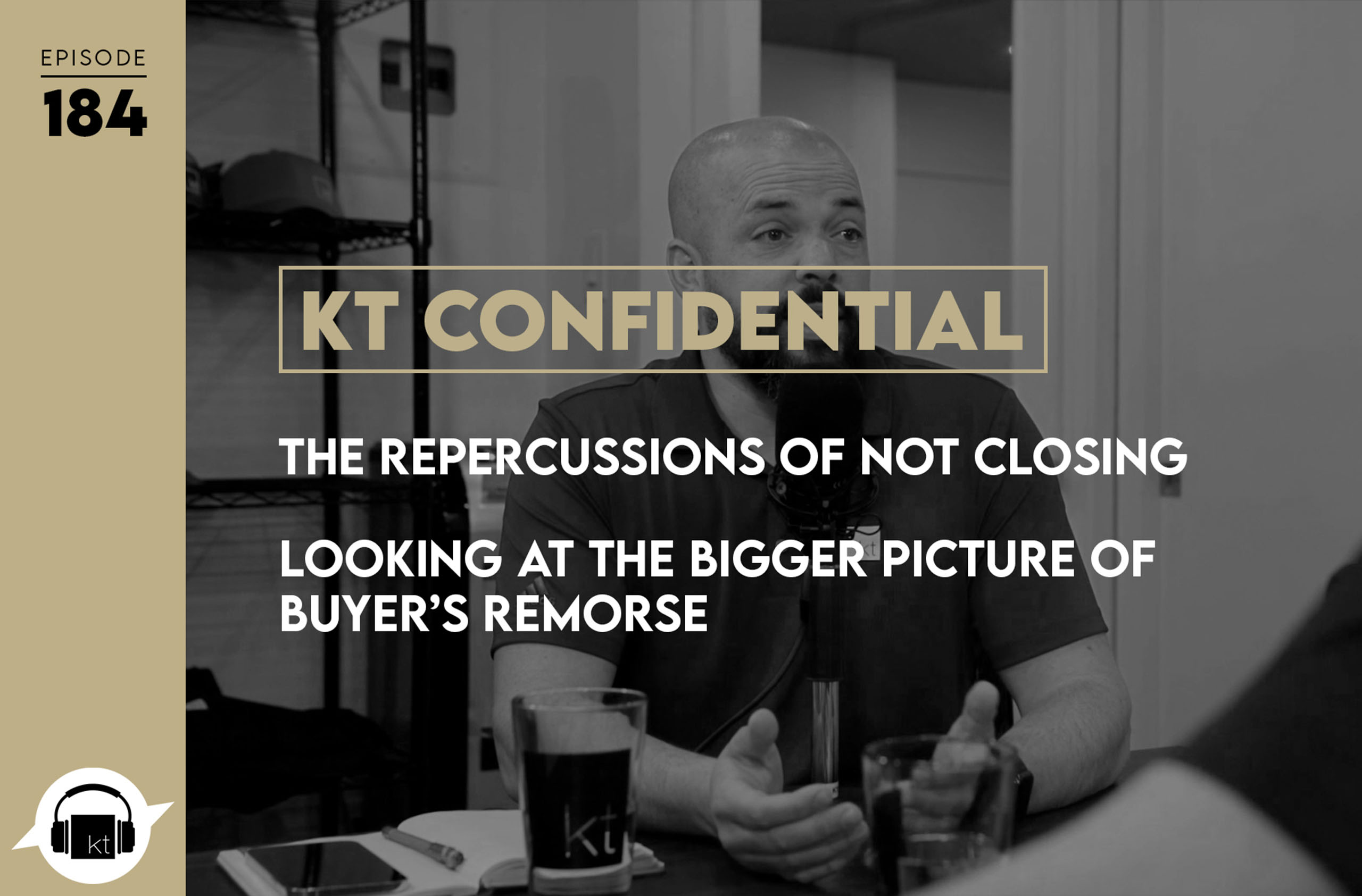Did you buy a house when the market was hot and regret it? A surge in buyer’s remorse results from housing prices dropping over the last few months after rising at record levels since the pandemic’s start.
Canada has enjoyed a strong housing market for many years. There’s been the occasional pricing dip, but it’s rare. People have become accustomed to thinking that real estate is unstoppable and prices will continue to increase. So, people don’t know what to do when there’s a blip like we’re experiencing.
But, like all markets, the housing market fluctuates. In the stock market, if you pay $100 for a share today or tomorrow, it could be worth $150 or $20 days later. There’s no way to know without a degree of doubt.
The reality is if you paid $1,000,000 for a home in February, that home is now probably selling in the $850,000 range. This is when the buyer’s remorse kicks in, especially If you haven’t closed yet and you’re watching what’s happening in the market. Now is a good time to look at the bigger picture. If the house you bought is your primary residence, you’re probably planning to stay there for a minimum of five years. Likewise, if you’re an investor and purchased it as a rental property, you likely want to hang onto it for at least five years. The people who stand to lose are those who want to flip the house and make a profit quickly.
Purchasing/Selling at Peaks
If you sold a home when the market was hot, that’s a big part of the equation when you’re talking about buying at a high value. If it was a home you’ve owned for a number of years, you undoubtedly made a substantial profit.
However, if you purchased at peak pricing and it took time to get your home prepared to put up for sale, it speaks to the importance of always having your home ready to go on the market.
Neglecting to do some painting or making repairs to the home can set you back weeks, a month, or more. If you’re not buying and selling in the same market, which can be a very small window, you could end up buying high and selling low.
Under normal circumstances, it would be advantageous to spend the money and get that work done because it will help with the sale and increase the price of the house. But now that the market is declining, it won’t make up for the difference in the decrease, so it’s better to list as-is.
Realtors are often able to see indicators of a market change before the general public. Lean on your REALTOR® for insight that may help your real estate endeavour.
New Home Construction
Prices have gone up consistently for the last few years in the Halton Region, where there have been a lot of new developments. If you bought in the fall or early winter, you paid at the peak, and now prices are coming down for the new releases.
Buyer’s regret is understandable if you bought a brand-new build for $1,000,000, you’re not closing for 18 months, and you have no idea what the value’s going to be once it does close.
If you’re in this situation with a dip in the market, you may be better off carrying both houses if you can manage it. If renting out your home is an option and you can ride out the dip, you could end up coming ahead when the market returns in time.
Repercussions of Not Closing
If you’re in a position where you paid $1,000,000 for a property 60-days ago, it’s worth $850,000 now, and you haven’t closed on it yet, you may be contemplating walking away from your $50,000 deposit. But remember, you’ve signed a contract, and reneging would mean you’re in breach of contract.
Your deposit is still held in a trust account until the lawyers have made a settlement or it goes to court, and the judge decides what will happen. Typically, as the buyer, you’re responsible for any mitigated damages. That can be as extensive as paying all the legal fees, paying for the property to be relisted and marketed, and it could even mean paying the seller’s realtor twice.
But the biggest payout is any deficit, which means the difference between what the house sold for when you bought it and what it winds up selling for. So, in this scenario, you have not only paid for the price differential caused by the market decline, but you don’t have the house.
A Seller’s Concerns
Some sellers are worried that their buyers won’t close on the deal, especially if now there’s a larger home with more features for sale in the same neighbourhood for a similar price.
When a substantial deposit and the possibility of losing in litigation is involved, it’s unlikely but still stressful for the seller in a situation where the home appraises at less than the purchase price, and the buyer may have to take additional funds out of their pocket to cover the difference because financial intuitions are getting tighter with their lending and their lending structure.
It speaks to the importance of buying a house you love. Going back to the beginning of the year, when inventory was low, people settled because there were no options. They realize they could have had their dream home if they’d only waited a few months.
In any market, make sure it’s the location you want to be in, and the house is suitable for your needs if there is a change in the marketplace.





